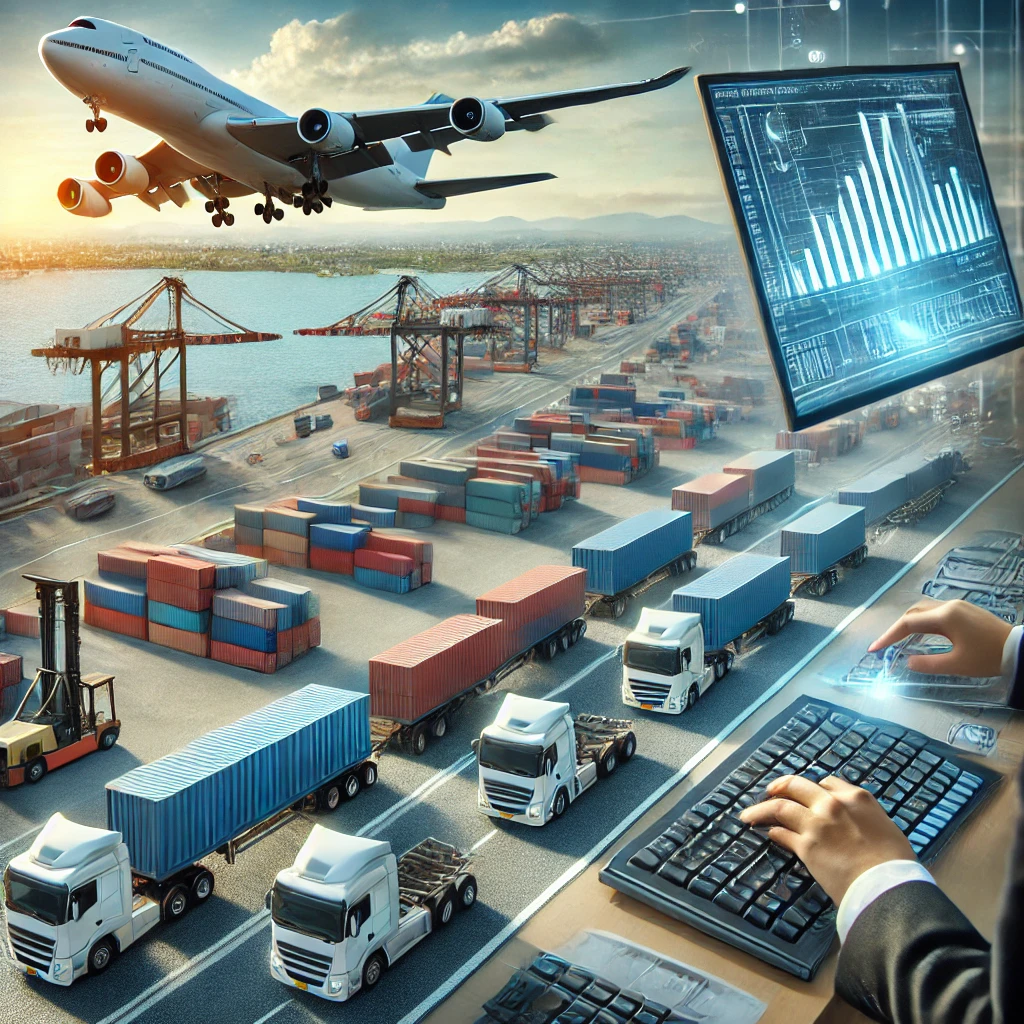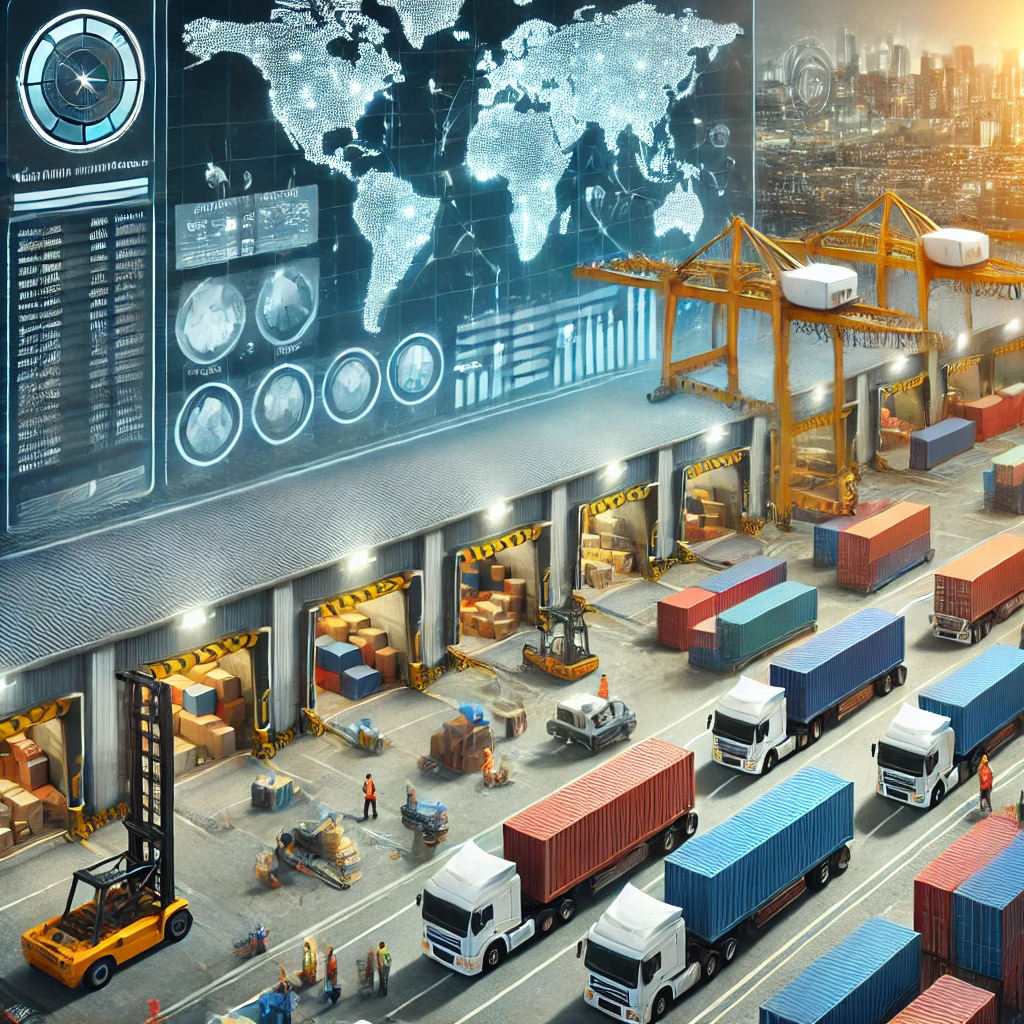The Basics of Freight Forward
This guide breaks down the fundamentals of forwarding, how it works, and why it's essential for companies engaged in importing and exporting. 🚢✈️🚛

🔍 What Is Freight Forwarding?
Freight forwarding is a logistics service that manages the transportation of goods from the manufacturer or supplier to their final destination. Freight forwarders act as intermediaries between shippers and carriers, coordinating shipments across multiple modes of transport while handling documentation, customs clearance, and cargo tracking.
Key Responsibilities of a Freight Forwarder:
✅ Booking cargo space with carriers 📦
✅ Handling shipping documentation 📜
✅ Customs clearance & compliance 🛃
✅ Cargo insurance & risk management ⚠️
✅ Supply chain coordination 🔗
Freight forwarders do not own the transport vehicles (ships, planes, trucks, or trains) but leverage their logistics network to move goods efficiently. 🚛📦
📦 How Does Freight Forwarding Work?
Freight forwarding involves multiple stages to ensure the safe and timely delivery of cargo. Here’s how the process typically works:
1️⃣ Cargo Pickup & Documentation – The forwarder collects cargo and prepares necessary documents (bill of lading, commercial invoice, packing list, etc.).
2️⃣ Customs Clearance at Origin – Goods are cleared through customs before being shipped internationally.
3️⃣ International Transport – Freight is shipped via air, sea, rail, or road depending on cost and urgency.
4️⃣ Customs Clearance at Destination – Import duties, taxes, and compliance checks are handled at the receiving country.
5️⃣ Final Delivery – The goods are transported to the buyer’s location or distribution center.
Each step requires precise coordination to avoid delays, fines, or supply chain disruptions. 📦🛃

🔑 Types of Freight Forwarding Services
Different businesses require different shipping solutions. forwarders offer a range of services based on cargo type, shipping urgency, and destination:
1️⃣ Air Freight Forwarding ✈️
- Fastest mode of transportation for urgent shipments.
- Ideal for perishable goods, electronics, and high-value items.
- Higher cost compared to sea or rail freight.
2️⃣ Ocean Freight Forwarding 🚢
- Best for bulk shipments and cost-effective international trade.
- Common in industries like manufacturing, retail, and automotive.
- Includes Full Container Load (FCL) and Less than Container Load (LCL) options.
3️⃣ Road Freight Forwarding 🚛
- Crucial for domestic and cross-border shipments.
- Flexible for short-distance and regional trade.
- Used for truckload (FTL) and less-than-truckload (LTL) shipments.
4️⃣ Rail Freight Forwarding 🚂
- A cost-effective alternative for long-distance, heavy cargo transport.
- More eco-friendly than road or air freight.
- Often used for industrial goods and large-scale shipments.
Each mode of transport has its own cost, speed, and capacity considerations, making freight forwarders experts in optimizing logistics solutions. 🔄📦
📜 Key Documents in Freight Forwarding
Shipping internationally involves complex documentation to comply with customs regulations and trade laws. The most common freight forwarding documents include:
📄 Bill of Lading (BOL) – A legal contract between the shipper and carrier detailing cargo information.
📑 Commercial Invoice – Used for customs valuation and tax calculation.
📦 Packing List – Provides details on cargo weight, dimensions, and packaging.
🛃 Customs Declaration – Required for import/export clearance.
🔗 Certificate of Origin – Verifies the country where the goods were manufactured.
Proper documentation ensures smooth customs processing and prevents costly delays. ✅📄

🏢 Who Needs Freight Forwarding Services?
Freight forwarding is essential for businesses involved in:
✅ E-commerce & Retail – Managing global product shipments efficiently.
✅ Manufacturing & Industrial – Ensuring raw materials and finished goods reach factories and distributors.
✅ Pharmaceutical & Medical – Transporting temperature-sensitive goods.
✅ Automotive & Heavy Machinery – Handling oversized cargo and global supply chains.
✅ Food & Agriculture – Ensuring perishables arrive fresh.
Companies that ship goods domestically or internationally benefit from the logistics expertise of freight forwarders. 🌍📦
⚠️ Challenges in Freight Forwarding
Despite its advantages, freight forwarding comes with challenges that businesses must manage:
❌ Customs Delays & Regulatory Changes – Import/export laws vary by country, leading to clearance issues.
❌ Port Congestion & Shipping Delays – High traffic at ports can cause logistical bottlenecks.
❌ Freight Cost Fluctuations – Fuel prices, demand, and economic conditions impact shipping rates.
❌ Cargo Damage & Theft Risks – Proper cargo insurance is crucial to mitigate losses.
A reliable freight forwarder anticipates and mitigates these challenges, ensuring smooth deliveries. 🚛🔍

🚀 The Future of Freight Forwarding
With advancements in technology and automation, the forwarding industry is evolving. Key trends shaping the future include:
📡 AI & Predictive Analytics – Enhancing route optimization and demand forecasting.
🚚 Autonomous Vehicles & Drones – Transforming last-mile delivery logistics.
🔗 Blockchain for Secure Shipping – Increasing transparency in global trade.
🌱 Sustainable Logistics – Reducing carbon footprints with eco-friendly transportation.
Companies that embrace these innovations will gain a competitive edge in global logistics. 🌎🚛📦
✅ Conclusion
Freight forwarding is the backbone of global trade, ensuring goods move efficiently across borders. By handling transportation, documentation, and customs clearance, forwarders simplify complex logistics operations.
Businesses that partner with reliable forwarders benefit from cost savings, reduced shipping risks, and optimized supply chains. As logistics technology advances, forwarding will continue to evolve and enhance global trade. 🚢✈️🚛
